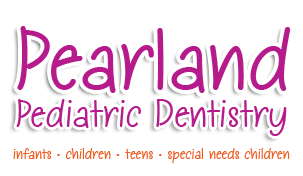June 20th, 2024

You’ve planned your dream vacation. Your reservations are made. You’re packed and ready. You’ve even scheduled a dental checkup at our Pearland, TX office to make sure you catch any potential problems, have finished any major work, and have an up-to-date chart.
But things don’t always go according to even the best of plans. So, what to do if you find you have a dental emergency while traveling? Dr. Pamela Clark and our team have some recommendations for problems that might arise.
- Toothache—Rinse your mouth with warm water and use dental floss to remove any food particles. Never put aspirin directly on a tooth or gum tissue. If the pain persists, call a dentist.
- Cracked or broken tooth—Immediately rinse with warm water to clean the area and apply cold compresses to the face to minimize swelling. Get in touch with a dentist.
- If you lose a tooth—Keep the tooth moist at all times. Put the tooth back in the socket without touching the root if possible. If that is not an option, place the tooth between the cheek and gums or in milk. See a dentist as soon as possible.
Know where to get help if you need it! If you are traveling in the United States, the American Dental Association offers Find-a-Dentist, a website that can locate a member dentist closest to you. If you are traveling to another country, there are steps you can take to prepare for an emergency.
- If you are out of the country and need to locate a dentist, your local embassy or consulate, your hotel concierge, or friends abroad can be a useful resource.
- Before you go, check your insurance to see if you are covered while traveling.
- If you have travel insurance, find out if it covers dental treatment and can provide information on qualified local dentists and translation help, if necessary.
- Good dental care is available in many areas internationally, but it is important to know what standards are present in the countries you plan to visit. The Organization for Safety and Asepsis Procedures offers a checklist for safe treatment in their “Traveler’s Guide to Safe Dental Care.”
If you have any questions, Dr. Pamela Clark and our team are happy to do all we can to answer them. While it’s unlikely that problems will arise, we are always available if you need to contact our Pearland, TX office. Bon voyage, and we look forward to hearing about your trip!
June 13th, 2024

Children are born with a natural sucking reflex. In fact, sonogram images from the womb often reveal an unborn baby practicing by sucking on his or her fingers or thumb. Not only does sucking aid in your baby’s ability to acquire food and nutrients, but it is also a security and possible analgesic outside of meal times.
Though it is both normal and beneficial for parents to soothe their children with pacifiers during infancy, long-term use could interfere with oral health and development. Most children will stop using a pacifier on their own. However, the American Academy of Pediatric Dentistry recommends halting pacifier use after age three. Prolonged thumb sucking or pacifier use after this time can cause the upper front teeth to begin to lean outward. It can also cause new teeth to erupt crookedly, and it can negatively affect jaw alignment.
If your child is not showing signs of self-weaning by age two, you may begin the process by limiting pacifier usage to specific times, such as nap time or when getting vaccinations. Offer an alternative security item, such as a blanket, and be sure to praise your child when he or she chooses the blanket over the pacifier.
Tips
- Never under any circumstances should you dip your baby’s pacifier in something sweet. Though it is a tempting way of encouraging your child to take a pacifier when crying, it can also lead to early childhood tooth decay.
- If your child has not discontinued pacifier use by age three, talk with Dr. Pamela Clark about behavioral modifications or appliances that can help your child wean.
- Never use negative reinforcement to discourage pacifier use. Punishment for pacifier use is not effective for changing your child’s habits.
If you have any questions or concerns about your child’s pacifier usage or which types of pacifiers are best for your child’s oral health, please give our team at Pearland Pediatric Dentistry a call at our convenient Pearland, TX office!
June 13th, 2024

Children’s oral health differs from that of adults in a variety of ways. Dr. Pamela Clark and our team want you to understand how you can provide the best care for your son or daughter’s teeth. It’s essential to understand what your child will need from you when it comes to his or her oral health in those first few years.
In-home dental care begins when your baby starts to show signs of developing the first tooth. We recommend that you bring your child to our Pearland, TX office between the ages of one and two. Dr. Pamela Clark will take a look at your child’s tooth development and gums during this first scheduled appointment.
The initial appointment with your little one is designed to get him or her accustomed to our office. We recommend allowing your child to be in the exam room alone with us during the first visit in order to become comfortable with our staff at an early age.
We will go over several general matters during your child’s first visit:
- Look for signs of decay or other tooth or gum problems
- Make sure your youngster doesn’t have gum disease or cavities
- Examine your child’s bite, and check for misalignment that could lead to problems in the future
- Clean the teeth, and apply fluoride if your son or daughter is old enough
- Talk to you about proper oral health care for your
- Give you some tips for brushing and flossing your child’s teeth
- Answer any questions you may have about caring for your little one’s teeth
Once your child is old enough for his or her first visit to the dentist, you should begin to schedule regular cleanings every six months. If any problems arise before a scheduled appointment, call our Pearland, TX location and we will be happy to answer any questions you may have.
Remember, creating healthy oral health habits with your child early on is crucial. We’re here to guide you through this process and make sure your child is healthy and happy.
June 5th, 2024

It's almost game day and you're wondering what to put on the menu for your guests. Most snacks are typically highly processed and unhealthy. Why not mix it up this year and opt for some snacks that promote good oral health? Here are some of Dr. Pamela Clark favorites!
- Apples, carrots, celery, and cucumbers: These foods and other crispy, fibrous, fruits and vegetables are an excellent choice for the big game. Not only are they rich in vitamins and minerals which your body and mouth need, they are also known as detergent foods because of the cleaning effect they have on the teeth and gums. Try apples wedges spread with peanut butter and sprinkled with cinnamon.
- Beans: Beans are filling because they are packed with fiber and that keeps you from opting for sugary or fatty snacks. Along with fruits and vegetables, beans should be one of the stars of your game-day snack lineup. How about some hearty chickpea hummus with cucumber chips?
- Nuts like almonds, walnuts, pistachios, and cashews: Nuts abound in the minerals that help keep your teeth and gums strong like calcium, magnesium, and potassium. Put out a bowl of raw or roasted nuts for your guests as a crunchy, satisfying alternative to chips or crackers. Recent research even shows that the polyunsaturated fatty acids in nuts may help prevent gum disease. But remember not to eat the whole bowl! Nuts are very high in calories and a little goes a long way. Enjoy and handful or two along with your other healthy snacks.
- Dark chocolate: This one may be hard to believe at first, but research shows chocolate can be great for your teeth and help prevent decay! Now don't run off and start stocking your pantry with a bunch of that super sweet stuff, because these benefits come mainly from the tannins, polyphenols, and flavonoids present in the cacao bean. Dark chocolate is the least processed variety of chocolate and the closest to the cacao bean, so make sure you purchase a variety that is listed as 70% cocoa or more for these benefits. Like with nuts, chocolate is easy to overdo — aim to eat two or three squares.








